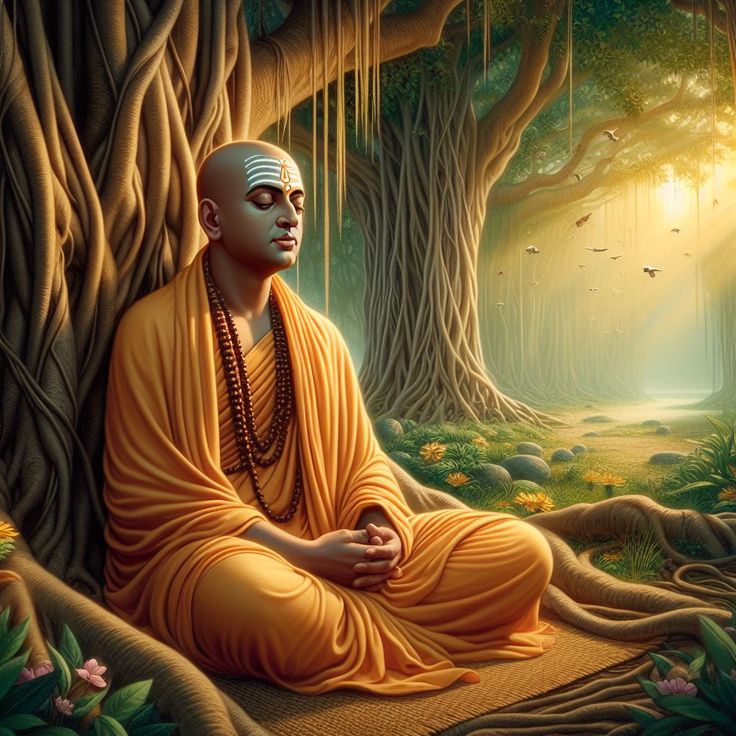Adi Shankaracharya: The Timeless Philosopher Who Transformed India
Overview: Adi Shankaracharya Biography
“10 Fascinating Facts About Adi Shankaracharya Biography That Will Inspire You Today” Adi Shankaracharya (788–820 CE) was a towering figure in Indian philosophy and spirituality. Known as the proponent of Advaita Vedanta, he redefined spiritual practices, restored the essence of Vedic traditions, and contributed significantly to Indian society. His teachings emphasized the unity of the soul (“Atman”) with the absolute reality (“Brahman”), steering people toward spiritual enlightenment and self-realization.
Adi Shankaracharya Biography
Shankaracharya was born in Kalady, a small village in present-day Kerala, India. According to tradition, he was a child prodigy, mastering the Vedas by the age of eight. His father passed away early, leaving Shankara’s mother to raise him. Despite societal norms, he pursued his spiritual calling, leaving home to become a monk.
Under the guidance of his guru, Govindapada, Shankaracharya achieved profound knowledge and embarked on a mission to revive and unify Indian philosophy. He traveled extensively across India, engaging in debates, writing commentaries, and establishing spiritual centers.
Impact on Daily Life and Society: Adi Shankaracharya Biography
Adi Shankaracharya’s teachings influence Indian society and daily life even today:
- Spiritual Awakening: His philosophy encourages introspection and spiritual growth. People are inspired to explore the deeper truths of existence.
- Institutional Framework: Shankaracharya established four monastic centers (“mathas”) in Sringeri, Puri, Dwaraka, and Joshimath, promoting a structured approach to spiritual learning.
- Cultural Revival: He preserved Vedic knowledge by challenging ritualistic practices and promoting meaningful worship.
- Unity in Diversity: His teachings foster harmony, bridging the gap between various sects and communities.
Historical Significance: Adi Shankaracharya Biography
- Revival of Vedic Dharma: During Shankaracharya’s time, Indian society was fragmented by dogmatic rituals and superstitions. His philosophy provided a unifying framework rooted in ancient scriptures.
- Philosophical Contributions: He authored profound commentaries on the Upanishads, Bhagavad Gita, and Brahma Sutras, simplifying complex concepts for seekers.
- Debates and Discourses: His debates with scholars of opposing schools, including Buddhism and Jainism, showcased his intellectual mastery and revived Advaita Vedanta.
Lesser-Known Facts: Adi Shankaracharya Biography
- Prodigy Monk: Shankaracharya took “sannyasa” (monkhood) at just eight years old.
- Philosophical Legacy: His commentary on the Brahma Sutras remains a cornerstone of Advaita Vedanta.
- Miracles and Legends: Stories of Shankaracharya’s miracles, including his debates with Mandana Misra and traveling to Kailash, are deeply ingrained in folklore.
Frequently Asked Questions (FAQs): Adi Shankaracharya Biography
Q1: What is Advaita Vedanta?
Advaita Vedanta is a non-dualistic school of Hindu philosophy that teaches the oneness of the soul (“Atman”) and the ultimate reality (“Brahman”).
Q2: What were Shankaracharya’s contributions?
He wrote profound commentaries, established monastic centers, revived Vedic traditions, and unified fragmented schools of thought.
Q3: Why is Adi Shankaracharya significant?
He preserved the essence of Indian spirituality, fostered unity, and provided a systematic framework for spiritual practice.
Q4: Where are his monastic centers located?
Sringeri, Puri, Dwaraka, and Joshimath are home to his four main mathas.
Significance of Adi Shankaracharya: Adi Shankaracharya Biography
Adi Shankaracharya’s relevance transcends time. He played a crucial role in:
- Philosophical Enlightenment: Simplifying complex scriptures for common understanding.
- Cultural Preservation: Reviving and safeguarding ancient traditions.
- Social Reforms: Challenging superstitions and encouraging rational spirituality.
Observance and Legacy: Adi Shankaracharya Biography
Shankaracharya Jayanti, commemorating his birth, is celebrated with great reverence. Spiritual discourses, rituals, and events mark the occasion, reflecting his timeless legacy.
Wishing for Shankaracharya’s Values in Society: Adi Shankaracharya Biography
As society faces challenges of division and materialism, wishing for a resurgence of Shankaracharya’s wisdom can inspire individuals to lead lives of harmony, simplicity, and purpose. His emphasis on self-realization and universal consciousness holds the potential to create a balanced world.
Key Points at a Glance: Adi Shankaracharya Biography
- Born: 788 CE in Kalady, Kerala.
- Philosophy: Advaita Vedanta (non-dualism).
- Institutions: Established four mathas in India.
- Writings: Commentaries on the Bhagavad Gita, Brahma Sutras, and Upanishads.
- Legacy: Unified Indian philosophy, revived Vedic traditions.










